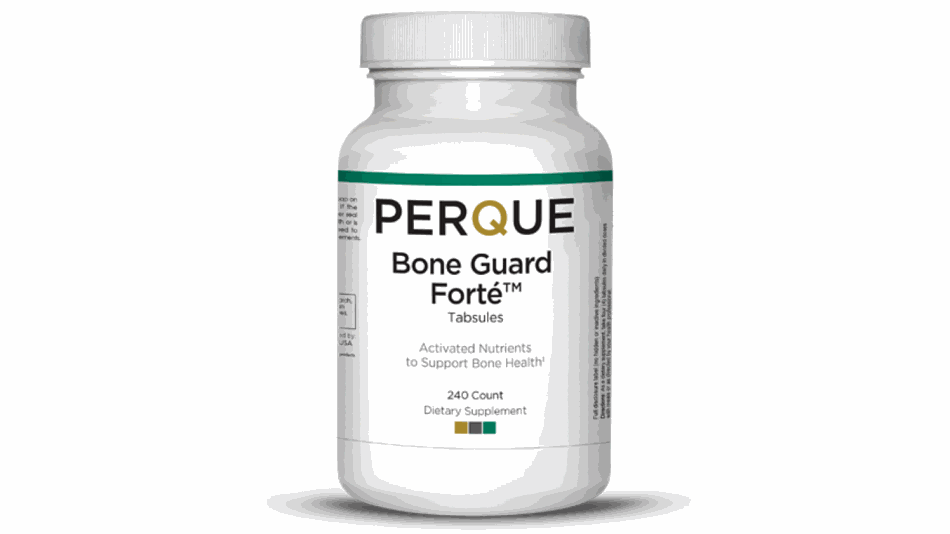
Answer:
Perque Bone Guard Forté is a supplement marketed as providing "19 uniquely balanced, energized, and alkalinizing bone builders." Although the manufacturer states that the supplement is "guaranteed to build bone or your money back," the product does not appear to have been tested in any clinical trial. Also, be aware that amounts of some of the vitamins and minerals in Perque are greater than what is considered safe when taken on a daily basis.
What ingredients are in Perque Bone Guard Forté and are they beneficial?
Perque contains numerous minerals and nutrients (described in detail below). A single serving is described as four tabsules. According to the product label, a typical suggested daily dosage is ½ to 1 serving for healthy bone maintenance, 1 to 1 ½ servings for those at risk for osteoporosis, and 1 ½ to 2 servings for people with osteoporosis.
Since Perque does not appear to have been tested in a clinical trial, we reviewed the amounts of each of its ingredients for potential efficacy and safety below.
Vitamins
Vitamin C (as L-ascorbate)
Perque Bone Guard Forté contains 200 mg of vitamin C (as L-ascorbate) per serving. Although vitamin C helps the body produce collagen, which is an important structural element in bones, there is no evidence that supplementing with vitamin C improves osteoporosis. The amount of vitamin C in Perque is well below the tolerable upper limit (UL) of 2,000 mg daily, but it is above the Recommended Daily Allowance (RDA) for adults, which is 90 mg for men and 75 mg for women from all sources.
Vitamin D3
Perque contains 10 mcg (400 IU) of vitamin D3 per serving. Taken with calcium, vitamin D can help decrease post-menopausal bone loss and prevent osteoporosis (loss of bone density), and the amount of vitamin D3 in Perque is well below the tolerable upper limit (UL). However, as discussed in our Vitamin D Supplements Review, if a person's blood level of vitamin D is already close to or above 20 ng/mL, taking a vitamin D supplement provides no further bone benefit.
Vitamin K-1 (as phylloquinone) and Vitamin K-2
Perque contains 750 mcg of vitamin K-1 (as phylloquinone) and 250 mcg of vitamin K-2 (form unspecified) per serving. According to Perque, "Vitamin K-1 and K-2 have been shown to reduce the incidence of fractures." Although vitamin K is important for calcium utilization in bones, most people are not deficient in vitamin K, and there is mixed evidence as to whether vitamin K supplementation, in its various forms, improves bone density or reduces fracture risk, even when taken in combination with calcium and vitamin D. Furthermore, because vitamin K plays a role in blood clotting, it may interfere with oral anticoagulant therapy, reducing the effectiveness of warfarin, at doses as low as 10 mcg of vitamin K-2 or 100 to 200 mcg of vitamin K-1 per day. The amounts of vitamin K-1 and K-2 found in Perque exceed these amounts.
Biotin (Vitamin B-7)
Perque contains 250 mcg of biotin per serving. Although biotin is needed for the metabolism of nutrients, there is no evidence that it is beneficial for osteoporosis. The dose of biotin in Perque is probably not a safety concern for most people, although it is well above the RDA for adults, which is 30 mcg, and most people are not deficient in biotin. Be aware that biotin may impair absorption of certain anti-seizure medications, and very high doses can interfere with a variety of laboratory tests.
Minerals
Calcium
Perque contains 500 mg of calcium (as calcium acetate, glycinate, succinate, malate, fumarate, and citrate) per serving. According to Perque, "Calcium is one of the most clinically studied nutrients for bone health," which is generally true. Calcium supplements, taken with vitamin D, appear to at least modestly protect against osteoporosis, but studies have not been consistent as to whether calcium and vitamin D reduce the risk of fractures.
The daily serving of this product provides a reasonable amount of calcium, although taking the highest dosage (eight tabsules daily) would nearly meet the daily requirement for calcium (1,200 mg per day for women 51 and older and men 71 and older). Since daily intake of calcium includes all sources of calcium — including foods, supplements, fortified foods, and calcium-containing medicines — it is possible that the highest dosage of Perque may cause you to consume too much calcium and may increase the risk of heart attack and stroke, and other adverse effects.
Magnesium
Perque contains 500 mg of magnesium (as magnesium acetate, glycinate, succinate, malate, fumarate, and citrate) per serving. According to Perque, "Magnesium deficiencies are a major reason for calcium and bone loss and may contribute to brittle bones." While this statement may be true, the amount of magnesium in Perque is excessive.
Adequate intake of magnesium has been shown to help maintain optimal blood levels of the active form of vitamin D. Among older men with women, getting the recommended amount of magnesium (which is 320 mg and 420 mg daily from food and supplements for women and men older than 30) has been shown to increase bone mineral density and reduce the risk of fracture. However, there is no evidence that getting more than the daily requirement is beneficial or that magnesium supplements are needed if you already get enough from your diet.
Furthermore, taking magnesium in amounts greater than the upper limit for magnesium, which is 350 mg daily (the upper limit takes into account only intake of magnesium from supplements), may result in too much magnesium in the blood, which can cause serious side effects, including muscle weakness, slowed breathing and even death. The amount of magnesium in Perque is above the UL for magnesium.
Zinc
Perque contains 10 mg of zinc (as zinc citrate) per serving. According to Perque, "Zinc promotes bone mass by influencing hormonal action." However, the use of zinc in high or low doses for osteoporosis remains highly speculative. Although the dose of zinc in Perque is likely safe for most people, there is no good evidence that it is beneficial.
Manganese
Perque contains 15 mg of manganese (as manganese citrate) per serving. Manganese is involved in bone formation and metabolism, but it is unclear if manganese supplementation affects bone health in humans. Furthermore, the amount of manganese in a serving of Perque exceeds the UL, which is 11 mg daily. Too much manganese may cause neurological side effects, such as tremors, muscle spasms, ringing in the ears, changes in gait and balance, and others.
Chromium
Perque contains 250 mcg of chromium (as chromium citrate) per serving. Chromium is an essential trace mineral, meaning that your body needs small amounts of it, but there is no evidence that chromium is beneficial for osteoporosis or bone health. Although chromium is generally well tolerated, it can cause side effects such as cognitive and motor dysfunction, headaches, insomnia and mood changes when taken in doses as low as what is contained in Perque Bone Guard Forté. Furthermore, in people who are not chromium deficient, chromium supplementation may worsen insulin sensitivity.
Selenium
Perque contains 250 mcg of selenium (as L-selenomethionine) per serving. Although higher blood levels of selenium have been associated with greater bone mineral density in postmenopausal women, it is unclear if supplementing with selenium is beneficial for osteoporosis. Furthermore, at the highest dosage (eight tabsules daily), the amount of selenium in Perque exceeds the upper limit of selenium for adults (which is 400 mcg). Excessive intake of selenium can cause hair and nail brittleness and loss. In people who already get enough selenium, supplementation may increase the risk of type 2 diabetes.
Copper
Perque contains 1 mg of copper (as copper sebacate) per serving. There is no evidence that copper is beneficial for osteoporosis. Copper is probably included in this supplement to offset the decreased absorption of copper caused by zinc. Excessive intake of zinc can lead to copper deficiency, which can cause immunosuppression, anemia, and heart problems. To partially offset these risks, it is generally considered advisable to take copper at a dose of 1 to 3 mg daily when taking zinc supplements long term.
Iodine and iodide
Perque contains 3 mg of iodine and 150 mcg of iodide (as potassium iodide, a source of iodine) per serving. There is no evidence that iodine is beneficial for osteoporosis, and the amount in Perque is well above the upper limit for iodine, which is 1.1 mg daily. Excess iodine intake can cause symptoms similar to iodine deficiency, which may include goiter, hypothyroidism, or iodine-induced thyrotoxicosis, and is discouraged for people with Hashimoto's thyroiditis.
Boron (as citrate)
Perque contains 6 mg of boron (as boron citrate) per serving. According to Perque, "Boron plays an important role in calcium and magnesium metabolism. It also works with vitamin D3 to boost the body's uptake of calcium." Very preliminary research suggests that boron might be beneficial for osteoporosis, although this has not been studied in clinical trials. While the amount of boron in Perque is probably safe, there is not enough evidence to know if it's beneficial for osteoporosis.
Vanadium (as citrate)
Perque contains 250 mcg of vanadium (as vanadium citrate) per serving. While the amount of vanadium found in this product is likely safe, there is no evidence that vanadium is beneficial for osteoporosis.
Silica (from magnesium trisilicate from horsetail)
Perque contains 10 mg of silica (from magnesium trisilicate from horsetail) per serving. In the body, silica (also known as silicon dioxide) is part of an enzyme that helps to form collagen and is a component of protein complexes that form hair, skin, nails and bone. However, taking silica as a supplement has not been shown to increase bone density in clinical studies. Although silica is considered safe to use as a food additive in amounts up to 2% of a food's weight, there is insufficient data available to establish a Tolerable Upper Intake Level.
Strontium (as citrate)
Perque contains 50 mg of strontium (as strontium citrate) per serving. According to Perque, "Strontium improves bone mineral density." Although strontium as strontium ranelate, which was previously available by prescription in certain countries (but not the U.S.), showed promise in increasing bone density, reducing the risk of osteoporosis, and reducing fractures in women with osteoporosis, its use became restricted after it was associated with increased risk of heart-related adverse events. Although strontium as strontium citrate has been shown to be absorbed into bone, there is not research showing it to be effective for osteoporosis. In addition, because strontium has a higher atomic weight than calcium, it can artificially inflate bone density measurements using dual energy X-ray absorptiometry (DEXA), and this artificially inflated bone density does not necessarily correlate with stronger bone.
Cost
A daily serving of four tabsules of Perque costs about $1.45. However, out of all the minerals and nutrients in Perque, only vitamin D3, vitamin K-2, and calcium have good evidence of benefit for improving bone mineral density and reducing the risk of osteoporosis when taken as a supplement. In ConsumerLab's product reviews, one can get the same amount of these three vitamins for as little as 12 cents (1 cent for 400 IU of vitamin D3, 6 cents for 500 mg of calcium, and 5 cents for 250 mcg of vitamin K2). This means you would be paying over 10 times as much for a combination supplement containing numerous other ingredients with no strong evidence of benefit, some of which are in amounts that would be unsafe.
The Bottom Line:
There do not appear to be any clinical trials using the exact combination of mineral and nutrients in Perque to build bone density or treat or prevent osteoporosis. Although a handful of the ingredients in this product, including vitamin D3, calcium, and vitamin K-2, may have some benefit, it is unclear if the other ingredients add any significant benefit. Furthermore, the amount of some of the other ingredients — including magnesium, manganese, chromium, selenium, and iodine — exceed the amount considered to be safe. For this reason, it would be more appropriate to consider taking a single-ingredient vitamin D and or calcium supplement (and possibly vitamin K-2) if supplementation is necessary.
Join today to unlock all member benefits including full access to all CL Answers and over 1,400 reviews.
Join NowAlready a member? Sign In Here.
Join now at www.consumerlab.com/join/

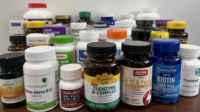
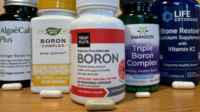
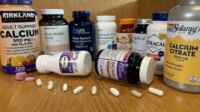
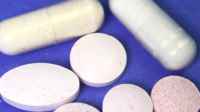
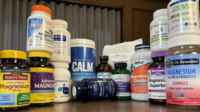
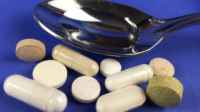
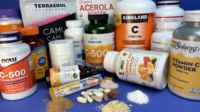
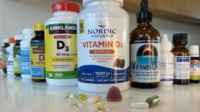
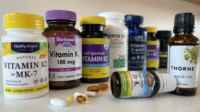
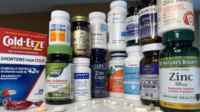
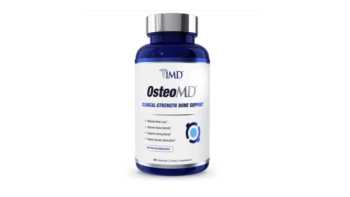

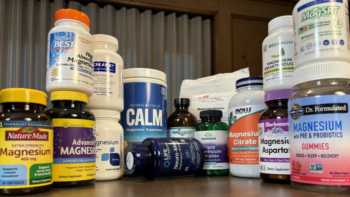
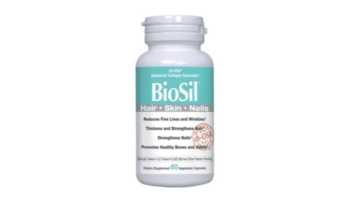






Submit your comment
This feature is restricted to active members.
Join now to add comments and get all member benefits, including over 1,400 reviews.
Join NowAlready a member? Sign in here.